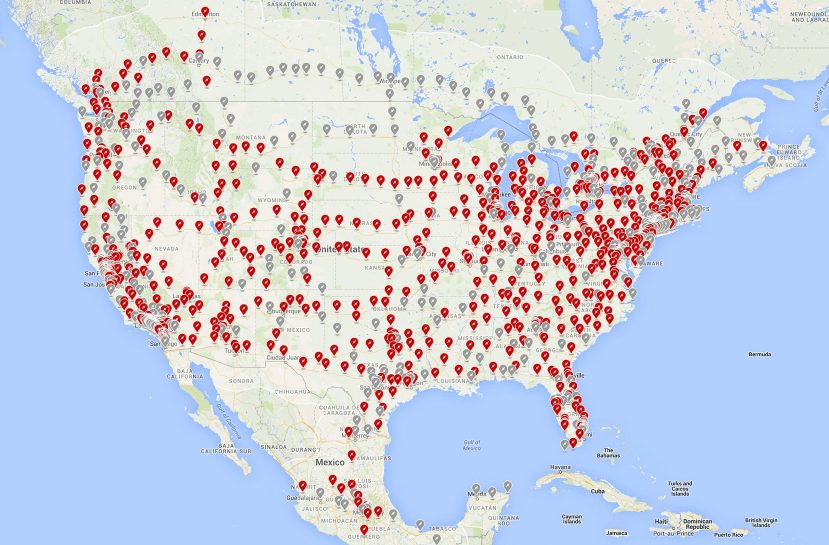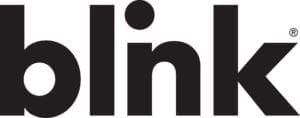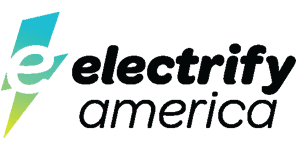Electric car charging is one of the biggest hurdles that consumers and automakers will have to tackle. Range anxiety is a big issue when it comes to electric car adoption. While electric car charging is very analogous to refueling a traditional car, it is a still a point of confusion for many. With that in mind, we will try to answer some of the most common questions that people have regarding electric car charging.
How much does it cost to charge an electric car?
The answer to this question is highly dependent on state, type of charger, and electric car you are charging. As an example if you charge from home, the average nationwide cost per kWh is 13.26 cents. So it will cost $13.26 to completely fill a Tesla Model S 100D (not accounting for ~10% or so energy loss). With a range of up to 335 miles, that translates into 3.6 cents per mile, in theory. According to AAA, “Fuel costs vary significantly by vehicle type, ranging from 3.68 cents per mile (electric vehicles) to 13.88 cents per mile (pickup trucks). New vehicle owners, on average, will spend just over 10 cents per mile – about $1,500 annually — to fuel their vehicles.” We will go a little more in-depth of some of the costs of electric car charging later on in the article.
Where are Electric Car Charging Stations?
While electric car charging stations are found nationwide, they are obviously much more concentrated in big cities and areas with high traffic, such as malls and other attractions. The Department of Energy currently lists 21,108 charging station locations within the United States. This of course pales in comparison to the 114,474 (as of 2012) gas stations found in the US.
However, it should not matter too much, as there are currently much less electric cars on the road than there are traditional ICE cars. So there is no reason to be too stressed about there being fewer electric car charging stations. Additionally, if you live in an area that might not be served with a charging station, worry not. There are many different companies (Blink, EVgo, Chargepoint, Electrify America, etc.) that are rolling out more charging infrastructure as we speak.
Electric Car Charging Map
Below you can find a map from the Department of Energy that plots all the available electric car charging stations.
How to Find Electric Car Charging Stations
While each electric car charging network provider will have their own map with locations of their chargers, it will be most effective to use something like PlugShare or Open Charge Map. These will show you all the electric car chargers around you, regardless of company.
Go ahead and take a look at some of the spots you already visit. You might be surprised to find out that there are electric car chargers located in the area that you had no idea existed.
Electric Car Charging Station Manufacturers
While this will not be the most comprehensive list of electric car charging station networks, it will list out the biggest and most common companies that you will see.
-
- Blink: The Blink charging network started off in 2009 as Car Charging Group, Inc. and recently changed names to Blink Charging in 2017. Currently Blink lists 1,611 charging locations for its Level 2 and DC fast charging stations with over 4000 chargers. They have a presence along with east and west coast of the United States, as well as the southern border. As of August 2018, it is the third largest network in terms of Level 2 chargers and fifth in terms of DC fast chargers.
-
- Chargepoint: Chargepoint started in 2007 and is currently the largest electric car charging network in the United States. It hosts over 6,000 electric car charging stations with almost 60,000 charging spots in North America, Australia, and Europe.
-
- EVgo: In 2010, energy company NRG launched EVgo. Since then they have been popping up DC fast chargers nationwide. While the total number of electric car chargers are quite low in comparison to other charging networks, EVgo boasts the highest amount of DC-fast chargers of any network. According to EVgo’s website, they open 1-2 public DC fast charging stations every 6-8 weeks.
-
- Electrify America: The entire existence of Electrify America is owed to Volkswagen and its diesel emissions scandal. In an effort to make up for it wrongdoings, Volkswagen created Electrify America which plans to have over 2,000 DC ultra fast chargers (350kW charging) at nearly 500 sites by mid-2019. While no car can currently take advantage of such fast charging, Electrify America is making sure to future-proof its electric car charging network. Currently there seems to only be 32 charging locations operational, but eventually the network will be spread nationwide.
-
- IONITY: What Electrify America is trying to accomplish with nationwide ultra-fast charging, IONITY is attempting to do the same for our friends in Europe. Founded by the BMW Group, Daimler AG, Ford Motor Company, and Volkswagen Group, the joint venture has some serious power behind it. The end goal is to have about 400 ultra-fast chargers spread throughout Europe by 2020. As of the time of this writing, IONITY has 56 charging stations live.
- Tesla: Tesla’s proprietary network only works on their own cars. But since it is so large, we have to mention it. Currently chargers can be found in North America, Southeast Asia, and Europe. As of now, there are 1,441 Supercharger stations with 12,888 Superchargers in North America. A point of concern with the network is its charging speed. While most other are building or upgrading their current chargers to be able to charge at 350kW, Tesla has yet to begin upgrading its current Superchargers which stop at 120kW.
Electric Car Charging Station Cost to Charge
Depending on what state and electric car charging provider you choose, expect to pay anywhere from $0.30 to $0.79 per kWh and $0.04 to $0.35 per minute of charging.
- Blink: Blink has a membership that appears to be free and does give a reduced rate of $0.10/kWh less than what a non-member would pay.
- Level 2 Charging: Ranges anywhere from $0.39 to $0.79 per kWh. In states where a per kWh charge is not permitted, the rate is $0.04 to $0.06 per minute depending on state and membership status.
- DC Fast Chargers: Ranges from $0.49 to $0.59 per kWh. In states where a per kWh charge is not permitted, the rate is $6.99 – $9.99 per session depending on state and membership.
- Chargepoint: Chargepoint’s pricing is interesting as they do not set the cost of charging when using their electric car chargers. According to their website, “Station owners set their own fees for charging and parking. Many stations are free to use, but be sure to check the app and the station display for fees.”
- A cursory look through my local South Florida area did show chargers that were indeed free. I did also find level 2 chargers that ranged from $0.30 to $0.39 per kWh and fast chargers that had a $5 flat fee. Overall, it looks to match Blink’s charging fees with the added benefit of having some electric car chargers be free.
- EVgo: EVgo features an optional membership that is $7.99 monthly. That gives you a discounted rate for charging along with 25-34 minutes monthly of free fast charging. EVgo imposes a 45 minute limit to both member and non-members. However, members get to charge for 60 minute sessions between 8pm and 6am.
- Level 2 Charging: Regardless of state or membership, standard level 2 charging will be $1.50/hour.
- DC Fast Charging: Unlike the previous electric car charging networks, EVgo does not have a per kWh pricing scheme in state that allow it, instead charging on a per minute basis nationwide. Non-member can expect to pay $0.27 to $0.35 per minute and members can charge at $0.23 to $0.31 per minute, depending on state.
- Electrify America: Electrify America does not offer any sort of membership for its chargers.
- DC Fast Charging: A $1.00 session fee is automatically charged along with a $0.30 to $0.35 per minute charging fee, depending on state. As of right now, there does not seem to be any per kWh charging plans.
- IONITY: IONITY also does not have a membership plan, currently. It also has the most simplified pricing scheme of all the networks mentioned, but we anticipate a more sophisticated pricing scheme to emerge once the electric car charging network is completed.
- DC Fast Charging: For the time being, it will cost €8, or £8, or 8CHF per session. In Scandinavian countries, the fee is 80 NOK / SEK / DKK per session.
- Tesla: Tesla used to have a state-by-state charging fee for their superchargers. However a couple of months ago, they had changed the fees for chargers based on other factors. So chargers within the same state could have different charging fees.
- Superchargers: Currently Tesla lists the United State average as $0.28 per kWh. In states with per minute fees, Tesla lists $0.13 per minute at or below 60kW and $0.26 per minute above 60kW (as you’ll be charging faster at that point).
How Fast Does an Electric Car Charge?
The answer to this question is highly dependent on both what you are using to charge your electric car and what kind of charger you are using.
Level 1
To start off, we have a Level 1 charger, which is essentially just plugging in your car into your standard wall outlet. This presents the slowest charging speed as it only provides around 1 kW of power (meaning if you wanted to fill up a 50 kWh battery, it would take you about 50 hours). This should only be used if you own a plug-in hybrid with a very small battery (less than 8 kWh).
Level 2
Next up, we have Level 2 chargers which are commonly found on the side of city streets, businesses, and homes. This is the type of electric car charger you should be installing if you plan on charging your car at home. These provide anywhere from 3-20 kW of power. Meaning that if your charger is anywhere on the higher end of the range, your electric car can be charged to 100% overnight.
Level 3
Lastly, we have Level 3/DC chargers, these are the electric car chargers that you will find on the side of highways and highly populated electric car areas. These provide anywhere from 50 kW of power to 350 kW of power on some of the newest stations being built, such as those found in Electrify America and IONITY. When charging at a 350 kW station with a compatible car, you would be able to go from 0-80% charge in a matter of 15 minutes.
But hold up, not every car is capable of charging at these speeds. A BMW i3 or Nissan LEAF for instance will not be able to charge over 50 kW, meaning that you cannot reap the benefits of ultra-fast 350 kw charging. In fact, there is no car currently on the market that can take advantage of that charging speed. Currently, the only vehicles that can charge slightly over or around 100 kW is the Jaguar iPace, Tesla Model S/X/3, and Audi e-tron which holds the highest rating at 150 kW. One prominent electric car that will take advantage of 350 kW charging is the Porsche Taycan.
As you can see, charging speeds have progressed drastically over the past decade and it might only be a matter of time before charging your electric car will be faster than refueling a gas-powered one.
Where do you Charge a Tesla?

Charging a Tesla is not too different from any other electric car, but does come with a caveat. While most North American and European electric cars use a CCS Combo plug and Japanese electric cars use a CHAdeMO plug, Tesla uses a proprietary plug for their cars. As such, only their cars can use their extensive Supercharger Network, but you have the ability to use an adapter if you want to use another charger that offers either a CCS Combo or CHAdeMO plug.
It is a trade off that most people take as the Supercharger Network is one of the most extensive in the country. However, there is a bit of a shift in the Tesla plug recently. With the arrival of the Model 3 on European shores, Tesla opted to equip the Model 3 with a CCS plug instead their own. On top of that, Tesla is retrofitting European Superchargers to have a CCS plug so that the Model 3 can still use the Supercharger network.
Is this indicative of a change that Tesla might make to all of their worldwide models in the future? Who knows.
How Fast does a Tesla Charge?
While Tesla has maintained the lead for a long time in terms of charging speed, it seems that it might soon no longer be the leader in the race. While the Tesla Supercharger 120 kW charging limit allows most Teslas to reach an 80% charge within 30 minutes, it could soon be overlapped by many electric automakers and those jumping into electric car infrastructure within the next few years.
Most premium electric cars that Tesla will compete against will target 150 kW charging at the least, if not 350 kW charging like the Porsche Taycan and Audi e-tron GT. Tesla has announced plans for a Supercharger V3 this year so we will have to wait and see how they plan to compete.
It was seen that the long range Model 3 is theoretically capable of charging at upwards of 200 kW, which is a nice boost from the old 120 kW. Perhaps it will be able to take advantage of an increase power delivery from Tesla’s Supercharger V3, but honestly who knows when those will become a thing. They were supposed to begin rolling out last year.
Electric Car Charging Station at Home!
You could never have your own gas station at your house, but now you can have an electric car charging station within the comfort of your own home. When you ask most electric car enthusiasts, they will tell you that the “correct” way to charge an electric car is to use a home charger overnight. You’re only supposed to use fast chargers/superchargers when you are going on long trips. Obviously, this will probably not be possible for those that live in condos, but if you live in a house, its highly recommended to have your own electric car charger. Not only will the rates be cheaper, but you will save time by waking up each morning with a car that is fully charged.
How Much does it Cost to Charge an Electric Car at Home?
The rate will be highly dependent on your state. It could be anywhere from 9.09 cents to 33.82 cents per kWh. The national average hovers at 13.26 cents per kWh. Even at the highest per kWh cost (which is Hawaii skewing the range, as the second highest is only 21.81 cents per kWh), charging at a home electric car charger is competitive to charging at a regular electric car charging station.
If you were wondering about the cost of installing a home electric car charger, the Department of Energy released a graph in 2016 that showed the mean cost was $1,354. That seems high to us as it cost us under $100 and according to most people we’ve spoken with, averages range from $200-$500. To illustrate how long it would take for a home-based electric car charger to pay itself back, lets do some math with the stated $1,354 cost.
In this example I will take the Blink level 2 charging fee for Florida ($0.39 per kWh) and the actual average electricity cost for Florida ($0.1214 per kWh). Again, we will be using the Tesla Model S 100D as the 100kWh battery makes everything easy to visualize.
Every time you fully charge the Model S, you save $26.86 ($39.00 vs $12.14). If we assume the price we paid to install the charger was $1,354, then it will take us around 50.5 full charges to make up the money. With 50 full charges, the Model S will travel 16,887 miles (assuming 335 mile range). Meaning the home charger will pay for itself within 20,000 miles of you driving your Tesla Model S. Which is well within the lifetime of the car.
If you’re in Los Angeles County and need a charge station installed on either your commercial or residential property, feel free to reach out to Suncoast Energy.
Hopefully this has been informative to many of you. The take away is that if you are able to, make sure to install an electric car charger in your home. Even if the money savings don’t sway you, the fact that you won’t have to waste time charging your car should. Also for those that are unable to, or suffer from range anxiety, numerous charging networks are expanding as we speak and might one day be as abundant as the gas stations we have now. Electric car charging speeds are also constantly improving. Eventually, charging an electric car will be more convenient than filling up at a gas station. The majority of electric car owners already don’t use charging stations. Charging overnight in your own home allows you to leave for work every morning with a full “tank”.






1 comment
Obviously the author is electric-challenged. The 100kWhr battery cannot be charged for $12.95
if the electricity costs .1295 per kWhr. There is a penalty when putting power into a battery and when taking it out. It varies, but is not insignificant.